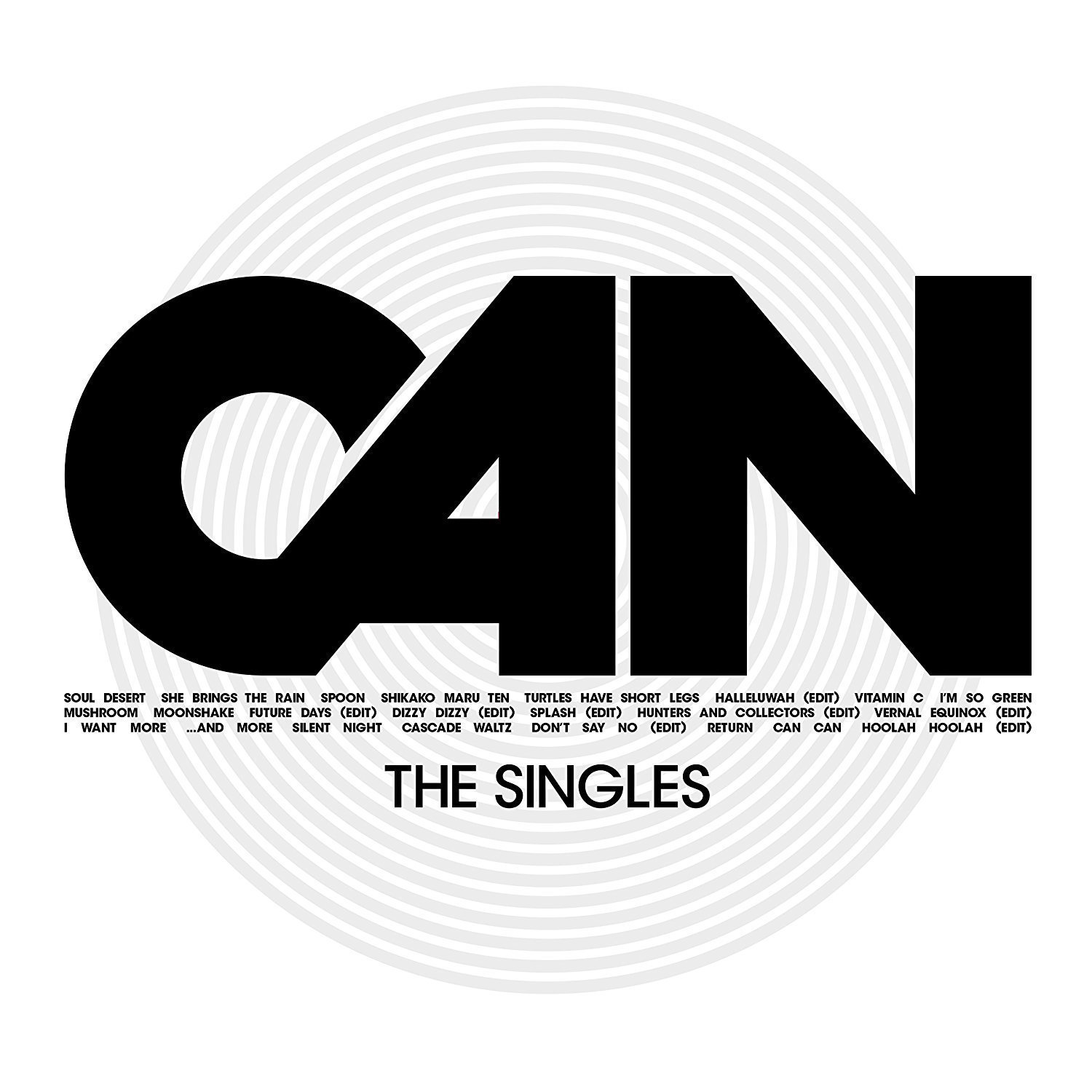This year – along with numerous other half-century anniversaries- marks fifty years since the formation of the mighty Can. To this day they are one of the most important bands to have emerged from Germany, and they predate Kraftwerk, Faust and Neu!. There’s much discussion of the term ‘krautrock’ (I got a very odd look from the assistant in Rough Trade twenty years ago when I queried whether the term might be, y’know, xenophobic) but call it what you will, there’s a spirit to the progressive rock bands that came out of Germany that seems to be missing from many of the English acts of the same period.
It might seem odd to have a singles compilation from a band who it’s easy to perceive as being more of an albums act – what with the sheer length of some of their tracks. But firstly Can did have the odd hit single – ‘Spoon‘ in their native Germany in 1972 and ‘I Want More‘ was a hit in Britain in 1976. It must have been a sign that there was a musical revolution just around the corner. A couple of years later, an excellent compilation called Cannibalism had sleeve notes by none other than Pete Shelley of the Buzzcocks.
Does The Singles simply perform the same function as Cannibalism? Well, yes and no. Yes, in the sense that serve as excellent introductions to the band, but this new compilation is more in depeth. Running pretty well chronologically, it includes the original singles versions of the tracks (ass opposed to the edits on Cannibalism). Also making the compilation are the rare single ‘Turtles Have Short Legs‘ and the b-side to the aforementioned ‘Spoon’ entitled ‘Shikako Maru Ten,’ and their interpretation of ‘Silent Night.’ It features a couple of tracks with original vocalist Michael Mooney – the gorgeous ‘She Brings The Rain’ and ‘Soul Desert’ as well as tracks when the legendary Damo Suzuki took over vocals.
What this compilation shows is how varied Can were, and how utterly ahead of the game they were. Respected rock critic Simon Reynolds wrote in the 1990s that “Can’s pan-global avant-funk anticipated many of the moves made by sampladelic dance genres like trip hop, ethnotechno and ambient jungle.’ Also important is the observation that just because music may be based on improvisation or draw upon the avant-garde, it doesn’t mean that it has to be unlistenable. These are songs, not just pieces of music, and the band owed just as much to rock as jazz and the avant-garde. Funnily enough, the only ‘difficult’ track on this album is ‘Can Can’ which is indeed them doing the piece from Orpheus In The Underworld by Offenbach – yes, the very same piece of music that would be covered by Mad Manners just a couple of years later. Difficult in the sense that it’s hard to take it as being more than a joke. Similarly, the feeling with ‘Silent Night’ is just a sense of …’er, why?’ But given the quality and sheer importance of the body of work included here, these are small quibbles.
There’s no doubt that Can have been a hip name to drop for a number of years. At the height of punk, John Lydon played ‘Halleluwah‘ on his legendary Capital Radio appearance on Tommy Vance‘s show in July 1977. His bandmate in PiL, Jah Wobble, would go on to collaborate with Can’s bassist Holger Czukay in the 1980s. There’s a huge list of bands who have held them up as an influence – some of the most important being The Fall, Happy Mondays and Joy Division, to name just three.
So if you’re unfamiliar with Can, start here. The studio albums are pretty excellent too (particularly those fronted by Damo Suzuki), but this gives an excellent oversight.
Enjoy the journey…




